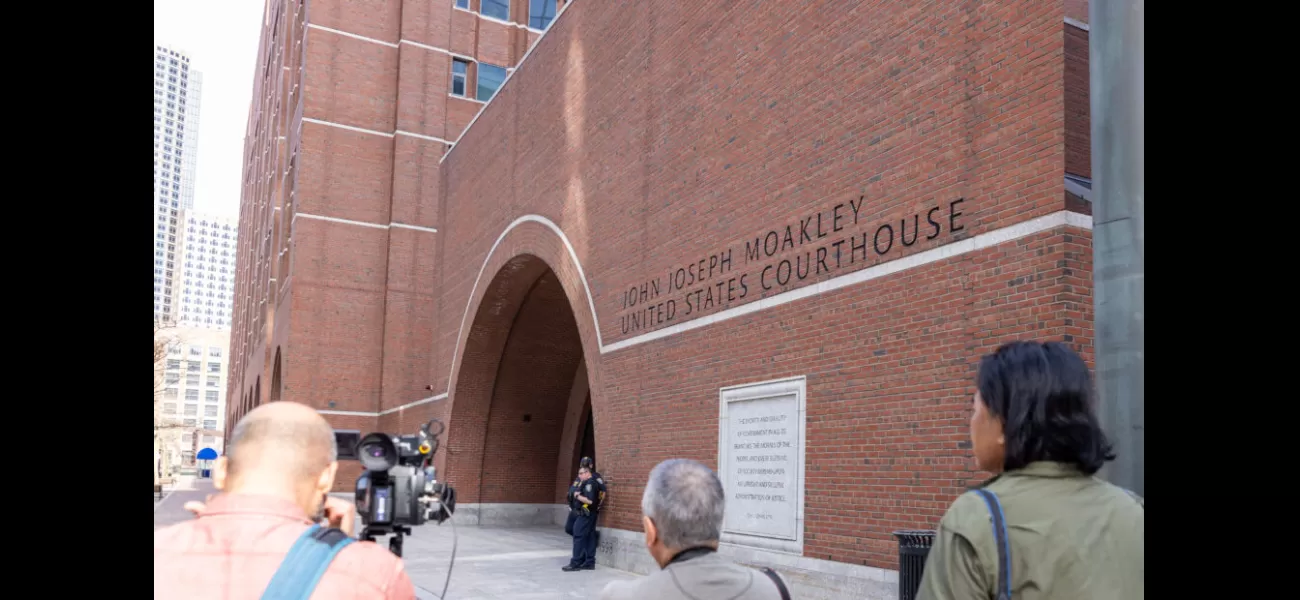Court denied claims that Boston school's admission policy had racial bias.
Court rules Boston school admissions policy non-discriminatory, based on zip codes & family income rather than entrance exam results.
December 20th 2023.

Today, the 1st U.S. Circuit Court of Appeals ruled that Boston school officials did not discriminate against white and Asian students by basing admissions at elite public high schools in part on applicants' zip codes and family income. The unanimous three-judge panel's decision came as a result of a lawsuit filed by the Boston Parent Coalition for Academic Excellence on behalf of five unidentified students.
The court stated that the city's policy, which was only in effect during the COVID-19 pandemic, did not violate the U.S. Constitution. They noted that the policy was adopted to increase diversity within elite schools and not to discriminate against students of any particular race.
Circuit Judge William Kayatta said that the Supreme Court ruling, which struck down race-conscious college admissions policies, did not render Boston's policy unlawful. He clarified that using socio-economic factors to increase diversity is different from giving explicit advantages to students of specific races.
Boston had changed their admission standards for Boston Latin School and two other elite schools in 2021 due to the pandemic preventing the administration of an entrance exam. The coalition argued that this policy illegally favored Black and Latino applicants.
The court said that the policy did not consider the race of any individual student, and the coalition had no evidence to show that the criteria used for selection was unreasonable or invalid.
Erin Wilcox, one of the lawyers representing the coalition, expressed her disappointment in the ruling. She urged the Supreme Court to review the use of racial proxies in school admissions.
The 1st Circuit's decision countered the coalition's argument that the policy had a disparate impact on white and Asian students in violation of their rights to equal protection under the U.S. Constitution. They noted that the percentage of white and Asian students at the three schools dropped from 69% to 41%, but it was unclear that the decrease was caused by the policy. They also pointed out that white and Asian students, respectively, made up 16% and 7% of the eligible student population, and 31% and 40% of successful applicants under the COVID-era policy.
The panel included Circuit Judges O. Rogeriee Thompson and Jeffrey Howard. Last May, the 4th Circuit ruled that a Virginia county did not intend to discriminate against Asian-Americans when it overhauled its admissions policy for an elite science and technology high school in 2020. A group of parents who had sued the county is also represented by Pacific Legal and have asked the Supreme Court to take up the case.
The court's ruling today serves as an important reminder of the need to consider race-conscious policies in school admissions. We can only hope that the Supreme Court will review this serious civil rights issue and deliver a ruling that is just and equitable for all.
The court stated that the city's policy, which was only in effect during the COVID-19 pandemic, did not violate the U.S. Constitution. They noted that the policy was adopted to increase diversity within elite schools and not to discriminate against students of any particular race.
Circuit Judge William Kayatta said that the Supreme Court ruling, which struck down race-conscious college admissions policies, did not render Boston's policy unlawful. He clarified that using socio-economic factors to increase diversity is different from giving explicit advantages to students of specific races.
Boston had changed their admission standards for Boston Latin School and two other elite schools in 2021 due to the pandemic preventing the administration of an entrance exam. The coalition argued that this policy illegally favored Black and Latino applicants.
The court said that the policy did not consider the race of any individual student, and the coalition had no evidence to show that the criteria used for selection was unreasonable or invalid.
Erin Wilcox, one of the lawyers representing the coalition, expressed her disappointment in the ruling. She urged the Supreme Court to review the use of racial proxies in school admissions.
The 1st Circuit's decision countered the coalition's argument that the policy had a disparate impact on white and Asian students in violation of their rights to equal protection under the U.S. Constitution. They noted that the percentage of white and Asian students at the three schools dropped from 69% to 41%, but it was unclear that the decrease was caused by the policy. They also pointed out that white and Asian students, respectively, made up 16% and 7% of the eligible student population, and 31% and 40% of successful applicants under the COVID-era policy.
The panel included Circuit Judges O. Rogeriee Thompson and Jeffrey Howard. Last May, the 4th Circuit ruled that a Virginia county did not intend to discriminate against Asian-Americans when it overhauled its admissions policy for an elite science and technology high school in 2020. A group of parents who had sued the county is also represented by Pacific Legal and have asked the Supreme Court to take up the case.
The court's ruling today serves as an important reminder of the need to consider race-conscious policies in school admissions. We can only hope that the Supreme Court will review this serious civil rights issue and deliver a ruling that is just and equitable for all.
[This article has been trending online recently and has been generated with AI. Your feed is customized.]
[Generative AI is experimental.]
0
0
Submit Comment





